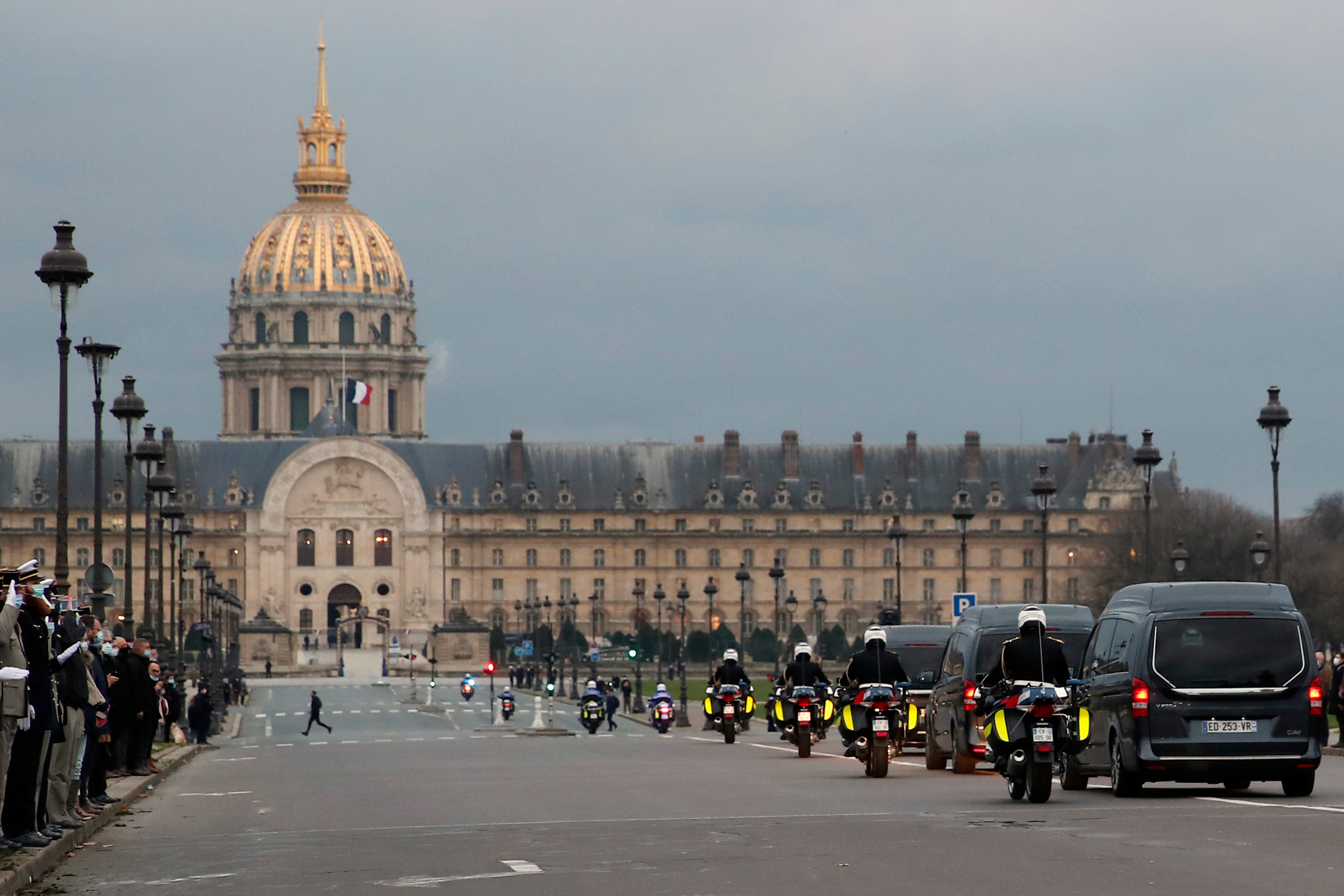France seeks strategy change to reduce troops in West Africa
As it pays tribute to its soldiers killed in Mali and faces questions over a deadly airstrike, France is considering changing its military strategy against Islamic extremists in Africa’s Sahel region — and a possible partial troop pullout

As it pays tribute Thursday to its soldiers killed in Mali and faces questions over a deadly airstrike, France is considering changing its military strategy against Islamic extremists in Africa’s Sahel region — and a possible partial troop pullout.
President Emmanuel Macron is expected to announce a timeframe for the evolution of France's largest international military operation at a summit in Chad's capital N'Djamena next month.
On Thursday afternoon, an elaborate ceremony will be held on the Alexandre III bridge in central Paris to pay homage to two soldiers killed in Mali by an improvised explosive device that hit their armored vehicle on Saturday. Three other French soldiers died just five days earlier in similar circumstances.
France's operation in Mali is also shadowed by unclear circumstances surrounding an airstrike that killed at least 20 people in a village where witnesses said Islamic extremists had confronted a wedding party. The French military said those killed were members of a “terrorist armed group" with no connection to a wedding.
French troops have been present in Mali since 2013 when they intervened to force Islamic extremist rebels from power. The operation, called Barkhane, was then expanded to include Chad, Niger, Burkina Faso and Mauritania to improve security and stability in the broader Sahel region.
Defense Minister Florence Parly said France will “very likely” reduce its 5,100 troops in the Sahel region, in an interview to Le Parisien newspaper earlier this week. No specific figures have been released.
Attitudes toward the French mission are mixed.
“French troops could not stay forever ... so many and (with) such mixed results. In a way, this is a good thing, because it will push each country to take more responsibility,” and collaborate better, said Chrysogone Zougmore, president of the Burkinabe Movement for Human Rights, a civil society group in Burkina Faso.
The discussion, though, comes amid few signs that Islamic extremist violence is waning: Last weekend militants staged attacks on two villages in Niger near its border with Mali, killing at least 100 people.
Siaka Coulibaly, an analyst with Burkina Faso's Center for Public Policy Monitoring by Citizens, warned of a “severe degradation of security” if the French leave, because African armies aren't ready to fill the void. “We fear the worst for countries in the Sahel if foreign troops ever leave,” he said.
Next month's N'Djamena summit is set to reassess the situation a year after a meeting in the French town of Pau led to France sending 600 additional troops and concentrating military efforts along the porous border separating Mali, Niger and Burkina Faso.
Parly stressed that “any reinforcement, by definition, is temporary.” French troops in 2020 “achieved important successes, by neutralizing several top leaders of terrorist groups and by attacking their logistical network to disorganize them," she added.
Last June, Abdelmalek Droukdel, the leader of al-Qaida’s North Africa affiliate, was killed in Mali by French forces who had been hunting him in the Sahel for years. AQIM named a new leader in November.
A top official at the French presidency said the death of French soldiers will not in itself be the basis for a strategy change. Speaking anonymously in accordance with the presidency’s customary practices, he added that the upcoming strategic decisions will be based on the results in the previous year and on Sahel countries’ demands.
The intentions of newly-elected President Joe Biden regarding U.S. troops in Africa will also be a key factor in determining France's next steps.
In December, the French military chief of staff, General Francois Lecointre, told Le Monde newspaper during a visit to Mali that he aimed at “limiting” the number of troops there “as soon as possible.” He said France would not withdraw from Sahel but rather make its operation “evolve.”
France is also pushing to reinforce a regional five-country force launched in 2017 with support from the United Nations, the African Union and the European Union. But the so-called G5 Sahel has been slow to gain strength and is still short of equipment and training.
The French military operation enjoys broad support at home. But some voices are calling for an exit plan.
Far-left party France Insoumise (Rebel France), which has 17 lawmakers at the National Assembly, urged the government this week to “publicly present its strategy to allow our soldiers to return with no prejudice to the stability of the region.”
“Today, the bogging down is clear, our soldiers are dying, the government acts only in reaction and the goals it pursues are more uncertain than ever," the lawmakers' group said in a statement.
____
Sam Mednick in Ouagadougou, Burkina Faso contributed.
Bookmark popover
Removed from bookmarks